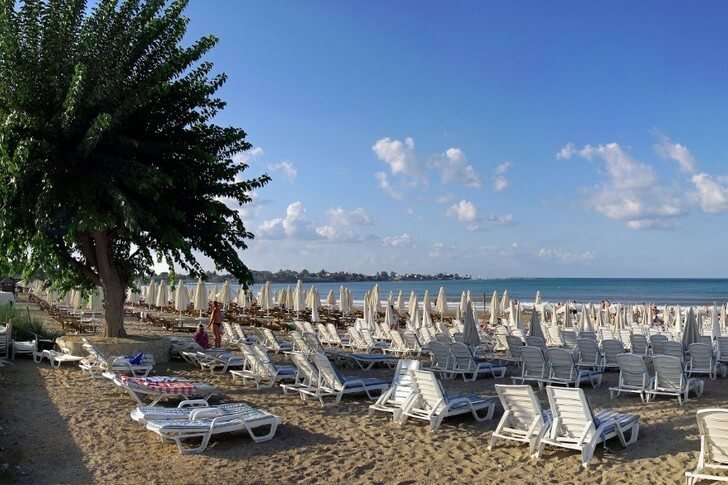The Turkish resort of Side, located on the Mediterranean coast, is a small and cozy town with a rich history. It was founded by the Greeks in the 7th century BC. The city passed from one conqueror to another, but the Romans did the most for its benefit. Today, tourists can admire the architectural sights of the Roman period all over Side.
Due to the hot climate, long coastline, quality beaches and developed infrastructure, the resort has long gained popularity among travelers from different countries. There are large hotel complexes operating on an all-inclusive basis, small boutique hotels, apartments and villas - everyone can find accommodation to their liking.
What to see and where to go in Side?
The most interesting and beautiful places for walking. Photos and a short description.
Temple of Apollo
The ancient temple of the Greek god Apollo is the main attraction of Side. It was built in the II century. The structure stood for almost 800 years before the earthquake of the 10th century. Today, the once majestic building lies in ruins - only part of the facade with five columns has survived from it. The remains of the temple are located on the seashore, they harmoniously fit into the picturesque coastal landscape.
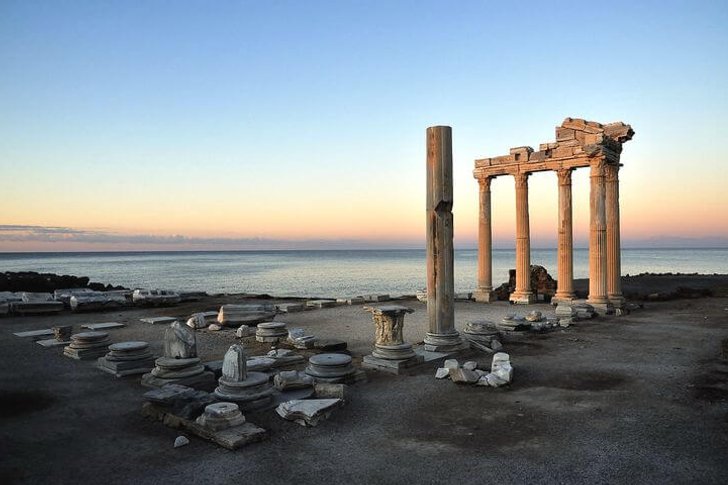
antique amphitheater
Presumably, the amphitheater was built during the era of Roman rule, when Side was part of a prosperous trading colony. The building has survived quite well to this day, despite its considerable age. The stone stands, which could accommodate up to 20 thousand spectators, the stage and the walls survived many centuries of history. The amphitheater in Side is the best preserved structure of this type in Turkey.
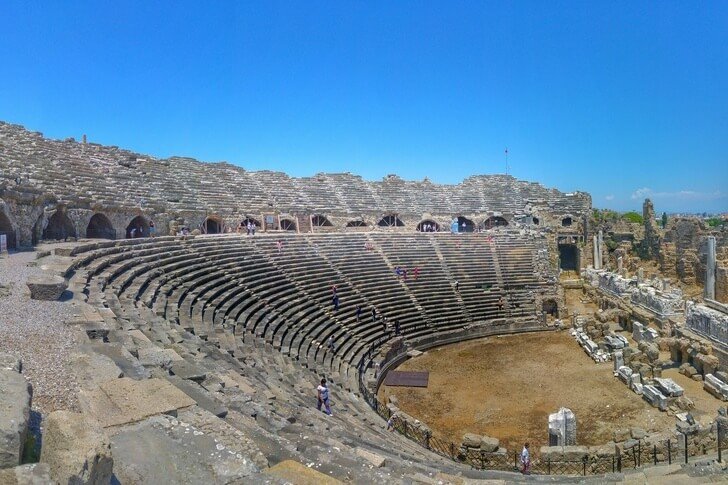
Side Museum
A small archaeological museum with an entertaining exposition, which contains artifacts from the ancient era (Hellenistic and Roman periods) found during excavations. Most of the items were discovered by archaeologists in the 20th century. Statues, sarcophagi, reliefs, elements of urban structures are exhibited here. The collection is housed in three halls of a room that used to house Roman baths.
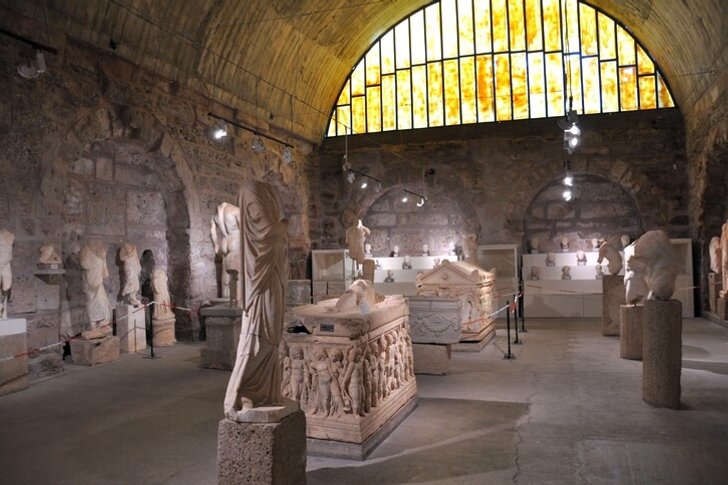
Side City Walls
The city walls are the remains of defensive structures from the 2nd century BC. The fortifications are on the mainland side. That part of them, which was located from the side of the bay, has not survived to this day. Over the centuries, the walls have been repeatedly destroyed and rebuilt, therefore, today they look like a heap of independent buildings from different eras, consisting of several levels.
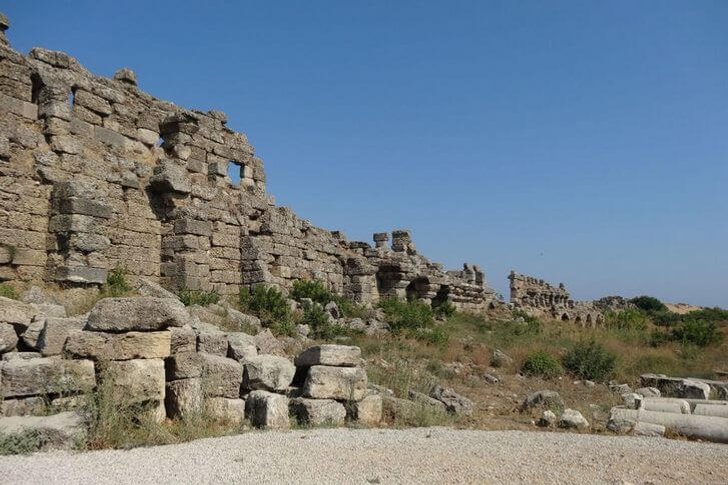
arched gate
The gate is located in the northern part of the city, through which you can get into the historical part of Side. From the arch begins the main street of the ancient colony. The building was erected in the 1st century in honor of the Roman emperor Vespasian. It was a grand structure, reaching a length of 6 meters. Over time, the gates were badly destroyed, but even now, from what remains of them, one can appreciate the monumentality of Roman architecture.
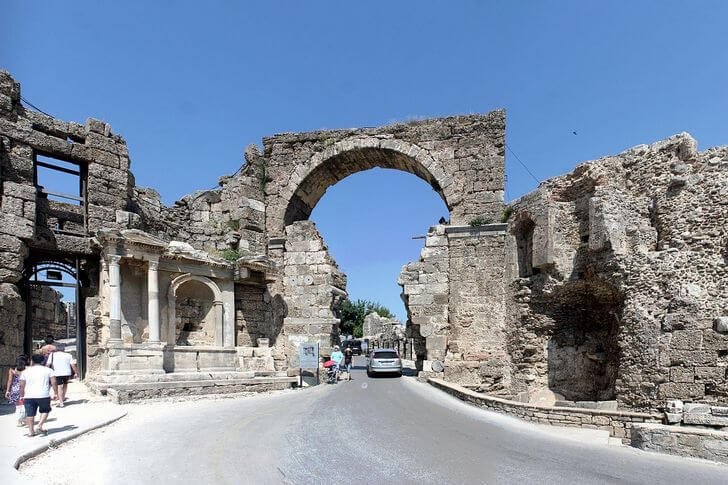
Fountain Nymphaeum
A three-story structure over 5 meters high, which adorned the Roman city for many years. Once upon a time, streams of water flowed along the marble niches of the fountain, surrounded by Corinthian columns and ancient statues, shimmering brightly in the rays of the gentle Mediterranean sun. Today, the remnants of former luxury continue to impress the audience and make them plunge into the atmosphere of the ancient era.
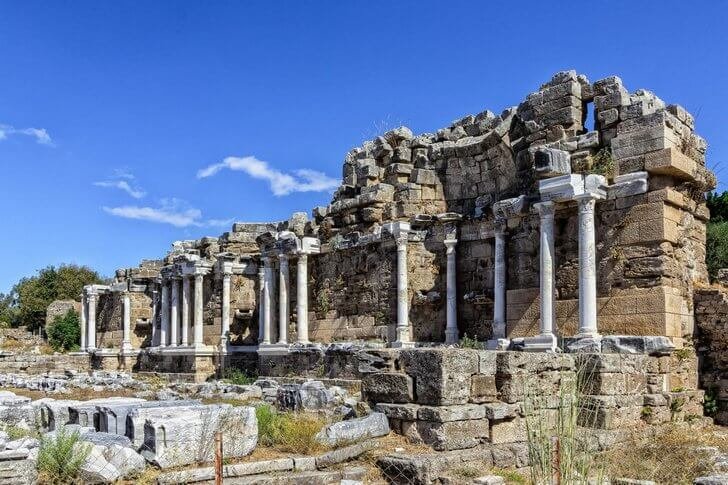
ancient roman aqueduct
One of the important achievements of Roman civilization is a well-functioning plumbing system, which ensured the delivery of water to cities using stone aqueducts. These structures stand all over the Mediterranean, reminding of the greatness and progress of a bygone civilization. Side also has its own aqueduct. Its length was about 30 km, of which 13 km were laid through tunnels.
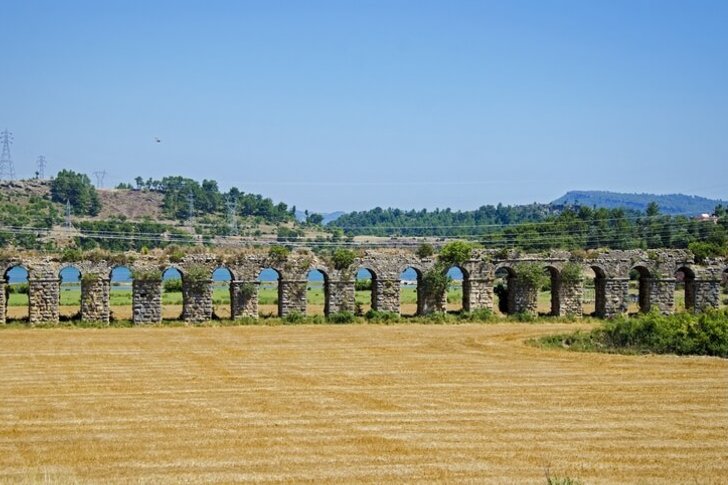
Aspendos Bridge
A 13th-century bridge on the Kopruchay River, built on the site of an old Roman structure during the time of the Seljuk Turks. The length of the structure is 225 meters, the width is 4.5 - 5.7 meters. It consists of five wide stone arches. From the side, the bridge looks humpbacked, as over time its supports have shifted from their original location. Aspendos is on the way to the amphitheater, it is worth stopping here to admire the picturesque river banks.
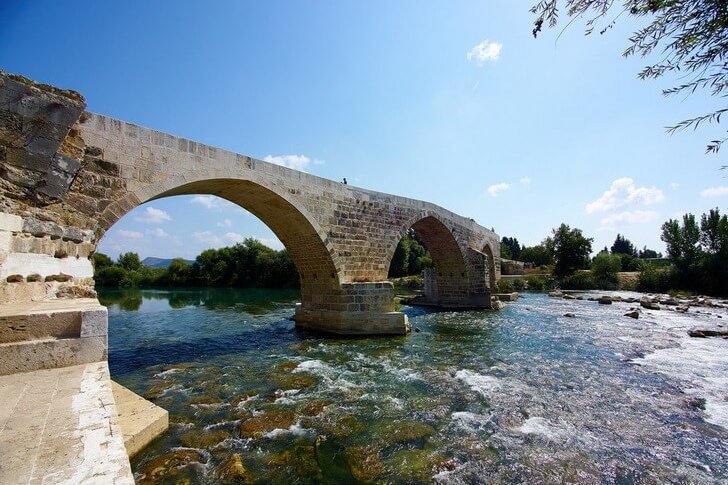
Waterfall Manavgat
The waterfall is located in the city of the same name, located next door in Side. It stands in the very center, which indicates that this attraction is not of natural origin. Manavgat is a construction of several stairs and platforms made in the form of ancient ruins. At the very top there is an observation platform from where you can admire the surroundings of the town.
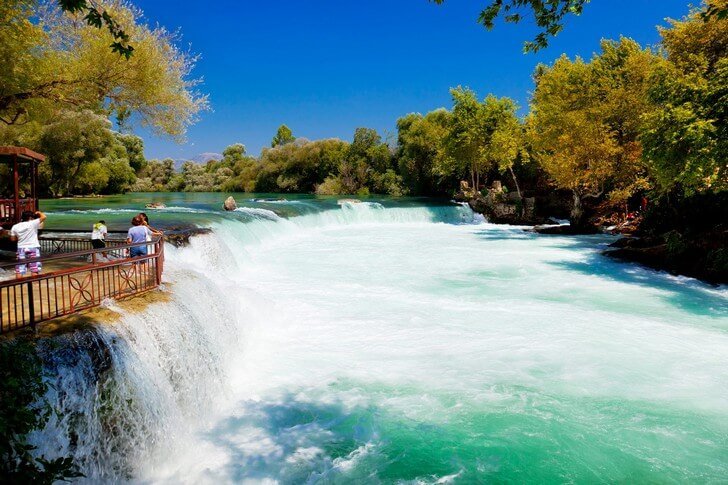
The beaches of Side
City beaches are divided into two sections: the western (public) zone, located along the promenade and the eastern, which is distributed between hotels. The first has all the necessary available infrastructure, the second service is provided by a specific hotel. All beaches are covered with coarse golden sand, have a convenient descent into the water and are perfectly suited for a comfortable stay.
